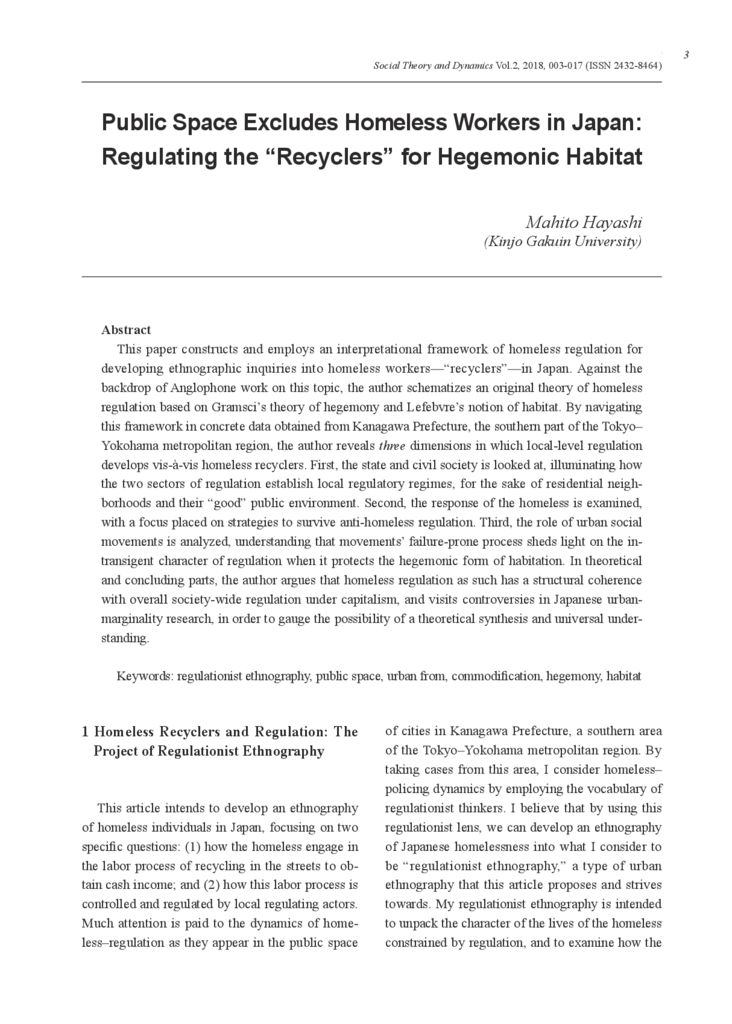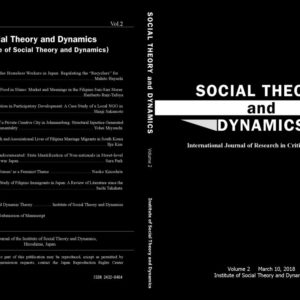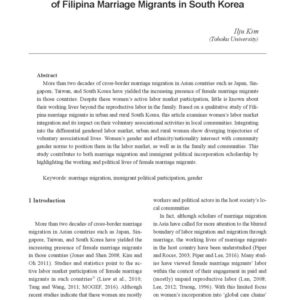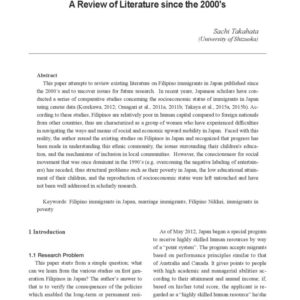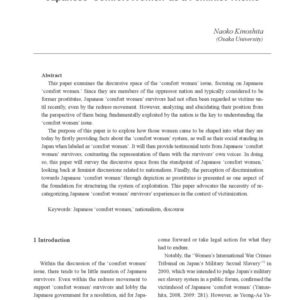Description
This paper constructs and employs an interpretational framework of homeless regulation for developing ethnographic inquiries into homeless workers—“recyclers”—in Japan.
Against the backdrop of Anglophone work on this topic, the author schematizes an original theory of homeless regulation based on Gramsci’s theory of hegemony and Lefebvre’s notion of habitat.
By navigating this framework in concrete data obtained from Kanagawa Prefecture, the southern part of the Tokyo–Yokohama metropolitan region, the author reveals three dimensions in which local-level regulation develops vis-à-vis homeless recyclers.
First, the state and civil society is looked at, illuminating how the two sectors of regulation establish local regulatory regimes, for the sake of residential neighborhoods and their “good” public environment. Second, the response of the homeless is examined, with a focus placed on strategies to survive anti-homeless regulation.
Third, the role of urban social movements is analyzed, understanding that movements’ failure-prone process sheds light on the intransigent character of regulation when it protects the hegemonic form of habitation.
In theoretical and concluding parts, the author argues that homeless regulation as such has a structural coherence with overall society-wide regulation under capitalism, and visits controversies in Japanese urban-marginality research, in order to gauge the possibility of a theoretical synthesis and universal understanding.

